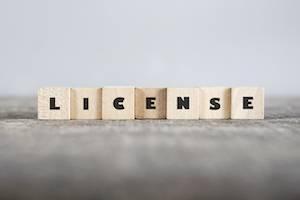Recent Blog Posts
Addiction Among Medical Professionals Is Common and Dangerous
 Some of the highest rates of addiction among professionals are found among doctors and nurses. Both doctors and nurses must maintain professional licenses in order to practice, and these licenses can be taken away if a board determines that substance abuse is interfering with the performance of one’s job.
Some of the highest rates of addiction among professionals are found among doctors and nurses. Both doctors and nurses must maintain professional licenses in order to practice, and these licenses can be taken away if a board determines that substance abuse is interfering with the performance of one’s job.
In these circumstances, hiring an attorney to represent you before the board will mean that you can feel confident your best case is being put forward and that you understand the process in which your license is at stake as well as your options moving forward.
Addiction in Healthcare Workers
In the United States, more than 100,000 doctors, nurses, technicians, and other health professionals are battling substance abuse or addiction. It is said that most health professionals struggle with abusing narcotics such as Oxycodone and Fentanyl.
The good news is that medical professionals have a high rate of recovery from addiction and substance abuse when they seek help.
Expunging Public Disciplines from IDFPR-Issued Licenses
 The Illinois Department of Financial and Professional Regulation allows licensees who have certain public disciplines on their records to classify them as confidential seven years after the disciplinary offense occurs. Specifically, the opportunity exists for licensees who have been disciplined for: failing to pay taxes or student loans; failing to complete the required number of continuing education credits; failing to renew a license on time; failing to obtain or renew a certificate of registration or ancillary license; violating rules related to advertising; or any ground for discipline that has been removed from the relevant licensing Act. When IDFPR grants these applications, the affected disciplinary actions are considered expunged.
The Illinois Department of Financial and Professional Regulation allows licensees who have certain public disciplines on their records to classify them as confidential seven years after the disciplinary offense occurs. Specifically, the opportunity exists for licensees who have been disciplined for: failing to pay taxes or student loans; failing to complete the required number of continuing education credits; failing to renew a license on time; failing to obtain or renew a certificate of registration or ancillary license; violating rules related to advertising; or any ground for discipline that has been removed from the relevant licensing Act. When IDFPR grants these applications, the affected disciplinary actions are considered expunged.
The Law Offices of Joseph J. Bogdan, Inc. can assist with expunging disciplinary actions or any other issues related to professional licenses. Contact our Illinois professional license defense lawyers at 630-310-1267.
Illinois Allows Psychologists to Prescribe to Patients
 Under Public Act 098-0668, Illinois amended the Clinical Psychologist Licensing Act to permit licensed psychologists to issue prescriptions to certain adult patients. Under the newer provisions of the law, a psychologist can apply for a prescribing psychologist license after completing advanced education and training in psychopharmacology and supervised clinical training. Prescribing psychologists are required to enter into a collaborative agreement with an Illinois physician who generally prescribes medications to his or her patients in the course of his or her normal practice. This change is intended to improve access to comprehensive mental health treatment in Illinois.
Under Public Act 098-0668, Illinois amended the Clinical Psychologist Licensing Act to permit licensed psychologists to issue prescriptions to certain adult patients. Under the newer provisions of the law, a psychologist can apply for a prescribing psychologist license after completing advanced education and training in psychopharmacology and supervised clinical training. Prescribing psychologists are required to enter into a collaborative agreement with an Illinois physician who generally prescribes medications to his or her patients in the course of his or her normal practice. This change is intended to improve access to comprehensive mental health treatment in Illinois.
The Law Offices of Joseph J. Bogdan, Inc. can answer your questions about licensing for psychologists, and we can assist with psychologist license defense for those who are facing disciplinary action. Contact an Illinois professional license defense attorney today at 630-310-1267.
Steps to Take When Purchasing a Pharmacy
 Owning a pharmacy can not only be a rewarding endeavor, but it can also be one that is financially profitable. However, owning a pharmacy can take a lot of hard work, and that work begins with the purchase of the business.
Owning a pharmacy can not only be a rewarding endeavor, but it can also be one that is financially profitable. However, owning a pharmacy can take a lot of hard work, and that work begins with the purchase of the business.
According to industry experts, it is a sellers’ market as prospective pharmacy buyers outnumber sellers by a 2 to 1 ratio. Thus, buyers must act smartly and quickly if they see an opportunity to purchase a pharmacy. This is subject to change over the next few years as most pharmacy owners are over 50 years old and will be retiring in the coming years.
If you are in the market to purchase a pharmacy, consider taking the following steps.
- Determine what you can afford. High volume pharmacies come at a significant premium because they typically are already generating profits. Lower volume pharmacies are more affordable and may present opportunities for growth. Getting pre-approved by a bank not only will help you focus your search to pharmacies you can afford but also signals to sellers that you are serious about buying.
Types of Audits Your Pharmacy Could Face
 Audits to your pharmacy can be made by insurance companies, pharmacy benefit managers and third-party payers. Many pharmacy owners view audits as a threat to their business and with good reason.
Audits to your pharmacy can be made by insurance companies, pharmacy benefit managers and third-party payers. Many pharmacy owners view audits as a threat to their business and with good reason.
The outcome of an audit can mean that a pharmacy is required to pay large sums of money that the auditing agency says it is owed. This could be taken out of what would be payments from future money that would be paid to the pharmacy.
Audits should be taken seriously, and often an attorney can safeguard a pharmacy’s rights as well as negotiate issues that may come up in the course of an audit.
There are six types of pharmacy audits:
- On-site/field audit. This type of audit is done at the pharmacy so that its operations can be thoroughly reviewed. Typically, this type of audit is announced ahead of time and a pharmacy will be given a list of prescriptions that may come up in the audit. However, this is not always the case. Though uncommon, on-site audits performed by Medicaid can be made without warning ahead of time. On-site audits usually cover claims for the prior 12 to 18 months.
Read This Before You Decide to Sell Your Pharmacy
 Being a pharmacy owner can be a rewarding and profitable career. However, all careers must come to an end, and at some point, you will likely wish to sell your pharmacy. Pharmacy owners decide to sell for many reasons. The technology is ever-changing, and margins seem to become thinner with each year. However, the most common reason for the sale of a pharmacy is that the owner seeks to retire.
Being a pharmacy owner can be a rewarding and profitable career. However, all careers must come to an end, and at some point, you will likely wish to sell your pharmacy. Pharmacy owners decide to sell for many reasons. The technology is ever-changing, and margins seem to become thinner with each year. However, the most common reason for the sale of a pharmacy is that the owner seeks to retire.
It is estimated that two-thirds of pharmacy owners are at or nearing retirement age. In the coming years, many pharmacies will experience a change in ownership. If you are looking to sell your pharmacy, there are a host of steps you can take to ease the process and to get top dollar for your business.
The selling process -- planning and executing the sale -- can take two to three years. In fact, many of the most successful sellers begin planning the sale when the pharmacy is bought. However, if you have a shorter timeline, many successful sales are prepared for in less time.
Ways to Prepare for Your PBM Audit
 If you have received notice of an upcoming pharmacy benefit managers (PBM) audit, there are several things you can do to prepare. The consequences of a PBM audit are real and can be long-lasting. Going into an audit prepared is advisable.
If you have received notice of an upcoming pharmacy benefit managers (PBM) audit, there are several things you can do to prepare. The consequences of a PBM audit are real and can be long-lasting. Going into an audit prepared is advisable.
Many clients find that adequate preparation can alleviate problems that can come up during an audit. A skilled PBM audit defense attorney can identify specific areas that you should focus on in the time before your pharmacy’s audit. However, typically you will benefit from taking the following steps:
- Review the written on-site audit notification. You want to pay close attention to the scope of the audit, including the date ranges that the audit will cover. The terms of the audit as stated in the letter should comply with your contract and will applicable laws. An attorney may be needed to determine compliance.
- Check the date of the proposed audit. This date should be a date when you and other needed personnel will be present. An audit should not be left to employees to handle.
What Does a License Revocation Hearing for a Professional Counselor Look Like?
 If you have a professional counselor or clinical professional counselor license, you could be investigated at any time by the Illinois Department of Financial and Professional Regulation. Depending on the results of the investigation, your matter may go to a hearing where your professional license would be at stake.
If you have a professional counselor or clinical professional counselor license, you could be investigated at any time by the Illinois Department of Financial and Professional Regulation. Depending on the results of the investigation, your matter may go to a hearing where your professional license would be at stake.
This hearing must follow specific rules and format, and your license cannot be revoked, suspended, or placed on probationary status unless these laws are followed. Having an attorney represent you means that you will know if these procedural laws are followed and it means that your best case will be put forward.
If the Department plans on refusing to issue or renew a license or if plans on disciplining a licensee, it must do the following 30 days prior to the hearing date:
- Notify the applicant or licensee in writing of any charges. The time and place for the hearing on the charges must also be in the notice.
Tips for Defending Your Medical License
 It’s a letter you may never thought you’d open: a letter from the Illinois Medical Board telling you that a patient has filed a complaint against you. Maybe you feel betrayed by a patient who would not bring his complaints to you directly or maybe you are worried about the implications of such a complaint on your career and your practice.
It’s a letter you may never thought you’d open: a letter from the Illinois Medical Board telling you that a patient has filed a complaint against you. Maybe you feel betrayed by a patient who would not bring his complaints to you directly or maybe you are worried about the implications of such a complaint on your career and your practice.
Whatever your initial reaction, it is important to quickly get caught up to speed about what it will take to defend your medical license and resolve this situation.
- Understand the scope of a complaint. The Federation of State Medical Boards reports that in 2012 in the United States, of 878,194 actively licensed physicians, 4,479 were disciplined. That number is less than 1 percent of all doctors in this country. In many circumstances simply having a complaint filed against you means that the state board will conduct an investigation, even if it is plain that the complaint is groundless.
Avoiding Burnout Is Key to Retaining Your Professional License
 Provider burnout is real, and it can have serious implications for your career. Many people who are at risk of losing their professional license are also burned out. Remaining motivated in your job is crucial to your overall success as well as keeping you from facing your profession’s governing body.
Provider burnout is real, and it can have serious implications for your career. Many people who are at risk of losing their professional license are also burned out. Remaining motivated in your job is crucial to your overall success as well as keeping you from facing your profession’s governing body.
Signs of Burnout
- Every day at work is a bad day;
- You are tired all the time;
- Your work becomes either overwhelming or very dull;
- You feel that your work goes unnoticed; and
- Caring about your job or home life seems like a waste of time.
How Can Burnout Affect Your Job
Burnout can lead to the following issues related to your career and license:
- Increased provider errors;
- Reduced empathy for patients;
- Decreased patient satisfaction;
- Reduction in patient compliance with treatment; and









